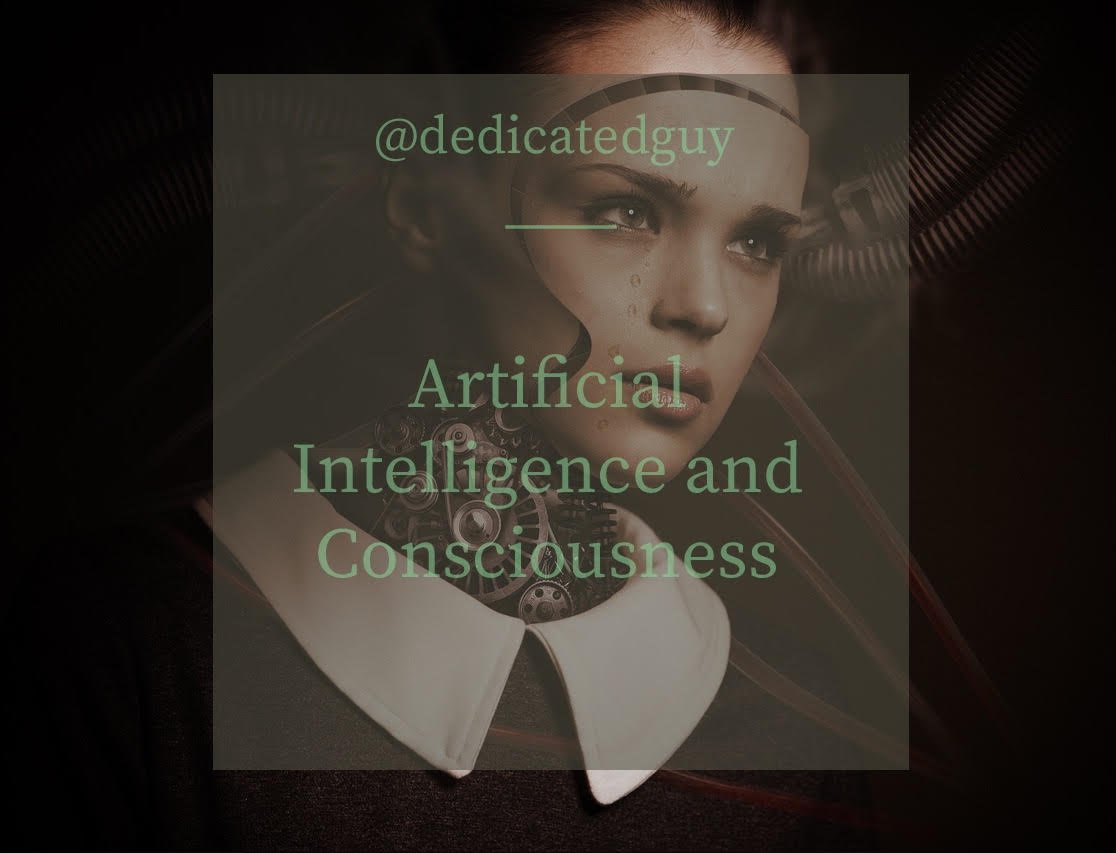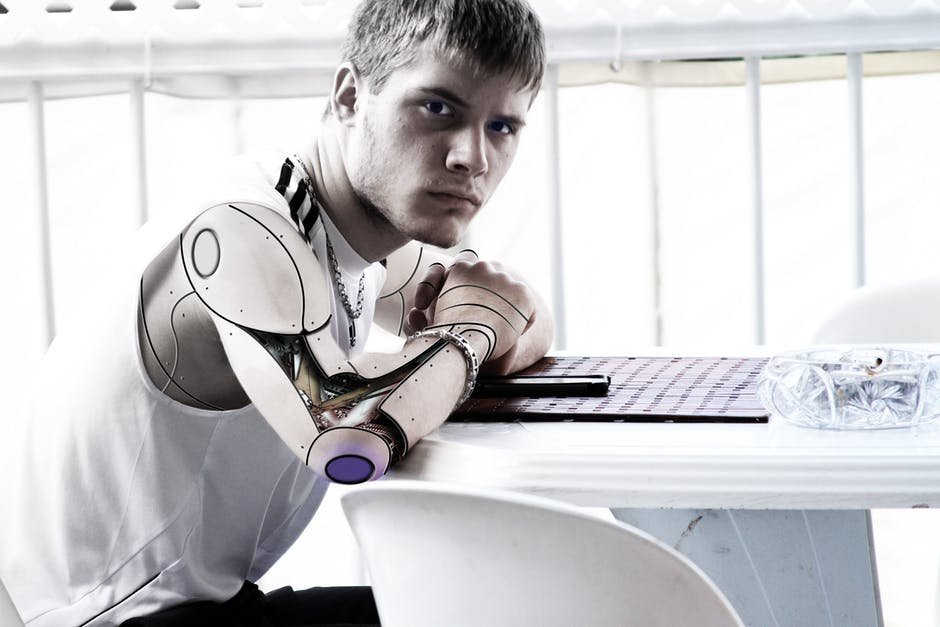Continuing from the previous article where I mentioned “The processing of information, starting from learning (what we call reasoning) is a basic capacity of the human mind.” Nevertheless it is not intrinsically linked to its essence. The subjective perception of reality is the basis of what we know as consciousness.


Free will, common sense, ingenuity, creativity and feelings are the attributes that actually define the human being. All of them are derived from this particular brain capacity that we call consciousness.
Computers are built under engineering principles and consequently their actions are always predictable. If we ask one of them to paint a painting, it will always follow the guidelines that his programmer has installed in it and it will be unable to create something personal or great, unlike for example Van Gogh or Picasso.

Is this subjective vision of things that today distinguishes the human being from machines above all else, and is this the great challenge facing singularity and fully conscious machines?. It might be...
What is a technological Singularity?
theoretical condition that could arrive in the near future when a synthesis of several powerful new technologies will radically change the realities in which we find ourselves in an unpredictable manner. Most notably, the singularity would involve computer programs becoming so advanced that artificial intelligence transcends human intelligence, potentially erasing the boundary between humanity and computers | Source
One of the fathers of the 20th century scientific and philosophical thought, Kurt Gödel, established in his "Theorems of incompleteness" (1931) that there are truths that are not demonstrable or recognizable as such using strictly logical reasoning or mathematical postulates and only turn out to be true when common sense is applied. On the basis of this principle, a machine will never be able to perceive reality as it is, as long as it is incapable of analyzing it in a subjective way. Therefore, a machine will have to be able to create personal opinions in order to be considered a conscious being.
Would it be possible to develop an AI, so advanced it can interpret reality in its own subjective way?

As it always happens with complex subjects, there are different opinions and different ways of answering this question.

According to those who research in the field of AI , consciousness appears in our brain exclusively as a consequence of some law of nature. If someone were able to decipher that law or reproduce that specific configuration of subatomic particles that shapes the brain, it would also replicate all its functions.
Reaching temperatures below absolute zero or moving faster than light are unthinkable things. There are laws of our universe that tell us that this is impossible. However, there is no known physical law that prevents to accurately replicate the configuration of particles that make up our brain. It all comes down to having the right technology.
Let's think about what this means. If we were able to copy exactly the human brain, we could build artificial beings endowed with consciousness, free will, genius and feelings. But we could also "upload" our mind into an artificial brain and live within an entirely synthetic body, making things like this no longer impossible. There would be no more diseases or reason to die since we would have transcend the limitations of a biological body. The potential if we ever manage to achieve this are practically endless. Our path to immortality and eventually a God like existence will be set.

If really the conscience is only a function executed by a set of replicable particles, it is difficult to answer many questions that immediately come to us, like:
- why, the same configuration of particles, can store thoughts and ideas, only to moments after store the opposites?
- why during the night, while we sleep, do we lose consciousness if the brain's configuration is the same?
- why do some skills that are conscious become unconscious (for example, ride a bicycle) if the brain particles have not changed?
- why many times the brain responds to some stimulus before consciously perceiving it (reflexes)?
- what configurations of particles are capable of holding consciousness and which are not?
- what specific properties of those particles make the difference?
We could also say that human intelligence, consciousness, free will and feelings are more than a few carbon atoms and emanate from something not subject to physical laws called soul.

There is no way to demonstrate that consciousness resides in the soul or that on the contrary it is supported on a base of elementary particles. Neither can the opposite be proved. Consequently, both answers escape the scientific approach. Neither can be proved. Perhaps we just need a little bit more time in order to "unlock" this valuable knowledge.
Arriving at this point, we already know that technology allows or will allow in the next years to physically build replicas of the human mind in computers, which can be emulated without difficulties the way in which the brain processes information and that it will be possible to create machines capable of learning by themselves. We have, however, many doubts when we ask ourselves if those machines will ever be conscious and if they can contain human feelings, although we do not know the principles or physical laws that prevent it. There is still a long way to go, but the important thing is this is not impossible.

Assuming the most ambitious vision (and the one I like to think about), we want to ask ourselves what the world would be like if we had to live with conscious and smarter machines than ourselves, to research the risks to which we would be subjected, and to think about how could we change our society in order to coexist with this new beings
Would you consider one of this intelligent machines, a being with "its" own rights? Or would you consider "it" an object?
References
Britannica
Image Sources
1 , 2 , 3 , 4 , 5
If these titles sound interesting to you, I assure you the articles will be even better!

Can a lesser intelligence create a greater one? Of course it can!
Don’t forget to be grateful with life
Shaping our future by learning from others
How can we create the future by thinking about it?
About our most valuable possession.
Teaching our synthetic children
